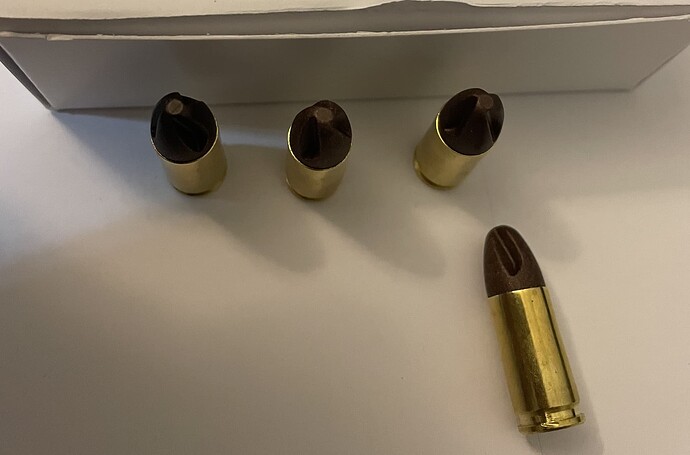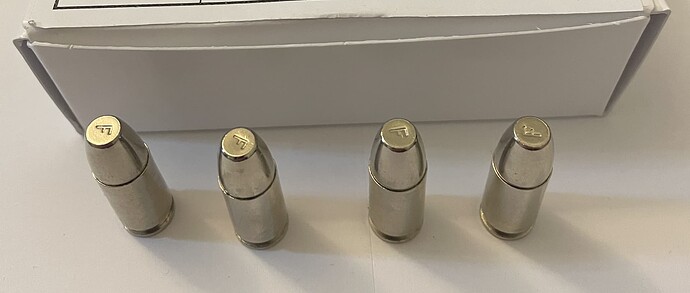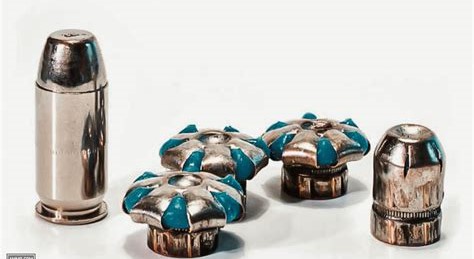This was written by me in 2013 just a few months after I got back into shooting.
Reloading/Hand loading Payoff
When faced with the prospect of easily spending over $1,000.00 for reloading equipment and components, one may ask themselves how they can justify the start up cost of reloading. As a (soon to be) new shooter myself, I have been trying to find a reasonable and logical answer to this question.
I am writing this not for the experienced reloader, as they already know why they do it. This is simply me sharing my thoughts out loud for anyone, who, like me, is thinking about getting into reloading or hand loading. As a matter of fact, as of this writing, I’ve not actually reloaded one single round. All that is contained herein is the collected wisdom I’ve taken from the real experts.
(EDIT: Update… Since the time I wrote this 11 years ago I have reloaded thousands of shotshells and a decent amount of .223 match ammo for my precision AR.
Shooters get into hand loading their own cartridges for a variety of reasons. They are listed below in no particular order of importance, it’s just the way I worked it out.
Reason #1, precision. Hand loading is practically a requirement for all competitive shooters. Precision shooters cannot achieve the remarkable level of accuracy they do without “tuning” their system. Tuning requires that the bullet weight, powder charge, burn rate, case dimensions, bullet seating and a few other factors, are combined to assemble the most ideal combination of components that match the harmonic attributes of their gun. A whole lot of science may go into the development of precision cartridges, but it is essentially an art.
Reason #2, Economy. For the recreational shooter who visits the range two or three times a month, six months out of the year, reloading will pay off very quickly. Let’s say the average cost per box of twenty practice rounds is $20.00, and you burn three boxes each trip. That’s $1,080.00 per year just for ammo.
Reason #3, Availability. I suspect that many people have recently developed an interest in reloading simply because ammo is in very short supply right now. In this case (no pun intended) they are reloading more out of need rather than choice.
Reason #3.5 oddballs. The oddball calibers can be prohibitively expensive and difficult to find. Unless you live next door to a Cabela’s, the chances of finding a good selection, or anything at all, in an unusual caliber can be an exercise in futility. In this instance, I’d say reasons 2 and 3 are both motivational factors.
Reason #4, customization. Many hunters make their own hand loads just to have the tip they like on top of the powder they like. Customization does not necessarily mean match grade rounds, it means trophy grade rounds. A hand loaded hunting round can still rival the precision of match grade rounds, but the objective is different.
Reason #5, the zombie apocalypse. Having a formidable stockpile of ammo can be reassuring to any one, but let’s face it, the preppers won’t be satisfied with just a good supply of ready to shoot ammo because it is a finite supply. Having the equipment and components to assemble 10,000 rounds (or more) to fight off the zombie apocalypse is a minimal requirement. Survivors will collect spent casings as if they were more valuable than gold.
So, what’s the payoff?
For the competitive shooter, the payoff is precision, cost is inconsequential. Precision hand loads can cost more than commercially available loads, and the precision reloading equipment is way more expensive than the standard gear.
For the recreational shooter, the payoff is big savings over time, paying roughly half the cost of off the shelf ammo. As one person told me, “pinch those pennies till they scream”. If one reloads even with a modest attention to detail, what you produce is likely to be better than the average grade target ammo.
Shortages happen. For the inevitable times when people panic buy, the payoff is just being able to shoot. Less concerned with cost and more with having a fine day of shooting with the family and friends is the payoff here.
Oddballs, economy and availability. `Nuff said.
(EDIT: Not enough said. Oddballs and less popular cartridges will payoff much faster and give the most satisfaction. 25-20 is rare as hen’s teeth and 28ga target loads are stupid expensive. Additionally some cartridges like 25-20 are seasonal runs and when it’s gone it’s gone.
For hunters, the payoff is a custom round they can send off with confidence. Projectiles that have just the right amount of splat for their hunting style.
The payoff during the zombie apocalypse is survival. After society has disintegrated, it will be every man for himself. If you think the current ammo shortage is bad, just you wait and see how bad it will be after the zombies eat all the people who work at the manufacturing plants. There will be lots of zombies to dispatch for sure, but the survivors will also have to contend with other marauding survivors who want to raid your food and ammo caches, and take your women.
EDIT: Little did I know back when I wrote this in 2013 that we would have a zombie apocalypse trial simulation in 2020.
Always save your brass and reloadable hulls. Even if you don’t plan on reloading anytime soon, holding on to spent cartridges is a smart move. You never know if you will need it in the future for yourself or to trade.
Savings aside, sometimes the best brass you can reload is brass that has already been fired once in your own rifle. For precision shooting with bolt action rifles, a spent cartridge “fire formed” to that rifle’s chamber will fit snugly after being reloaded. In this instance the spent brass is not full length resized, only the case neck and shoulder are reformed.
There will come a day when someone, whether it’s you or a friend will need brass. Leaving your brass at the range only provides an opportunity for someone else to profit from what you have discarded.
Well, this was just me thinking out loud. Take it for what it’s worth. Reloading will eventually pay off, one way or another.
EDIT: The above was written based on the plethora of reasons other reloaders made arguments for and against reloading. After surviving three panics, my opinions and view have changed some
Some folks say reloading does not save you money because you just end up shooting more, or that your time is valuable and that its cheaper to just buy it cheap and stack it deep. Both good arguments but both are dependent on normal times.
*Others gave examples such as shooting their 38sp hand loads for less per round than what 22lr was going for at the time. *
Buying 10,000 rounds of a specific ammo assumes you will still be shooting that exact same ammo 10-20 years later. Buying enough Varget to reload 10,000 rds give you the ability to reload scores of different cartridges.
*The reloading components I bought 10 years ago allow me to reload at a fraction of today’s cost of ammo. The reloading components and supplies you buy today are not a huge bargain tomorrow.
I am currently saving around $40-$45 case reloading 12ga trap loads with powder and primers I bought years ago. Ten years from now I suspect the savings will be even greater.
EDIT: I just checked prices for RGC and STS at Midway. I’m actually saving between $60 and $70 per case of 250
.223 match ammo like Black Hills currently costs about $1.25/rd. I can reload a better custom spec precision round for my rifle at 1/3rd the cost.
10 years from now you will be kicking yourself for not buying more of this or that because if there is one thing I’ve learned it is this. Ammo and reloading supplies NEVER get cheaper. If you are going to get into reloading it’s better to acquire supplies sooner rather than later.*


